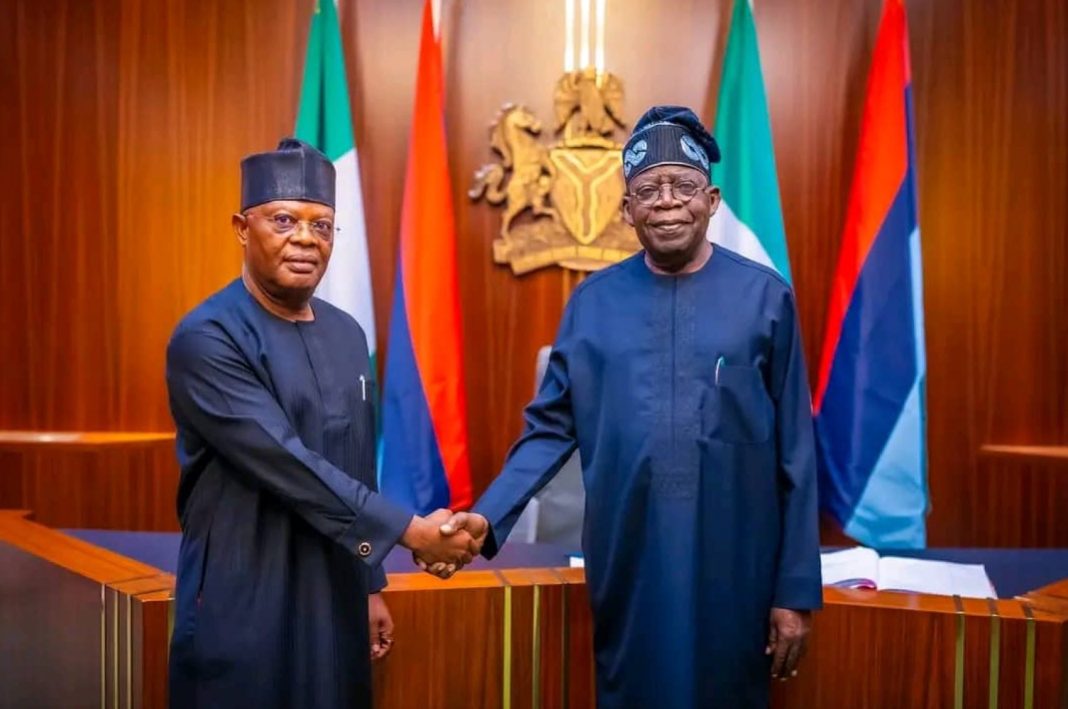ABUJA, Nigeria — President Bola Tinubu has sworn in retired Vice Admiral Ibok-Ete Ibas as the sole administrator of Rivers State, following the declaration of a state of emergency in the oil-rich region.
The swearing-in ceremony, held at the Presidential Villa in Abuja on Wednesday, March 19, 2025, came a day after Tinubu suspended Governor Siminalayi Fubara, his deputy, Ngozi Odu, and all members of the Rivers State House of Assembly for six months.
Ibas, a former Chief of Naval Staff, was appointed to oversee the administration of the state during the emergency period, a move that has sparked widespread debate over its legality and broader political implications.
Emergency Rule Amid Political Tensions
The imposition of emergency rule follows months of escalating tensions between Governor Fubara and his predecessor, Nyesom Wike, who now serves as Minister of the Federal Capital Territory (FCT).
The political rift has led to power struggles within the state government, drawing national attention.
President Tinubu charged Ibas with managing the state’s affairs while ensuring stability, but without enacting new laws.
The President emphasised that the primary objective of the emergency rule is to restore order and address security threats in the region.
A Veteran in Leadership
Ibas, who served as Nigeria’s Chief of Naval Staff from 2015 to 2021, is expected to bring his security and administrative experience to bear in navigating Rivers State’s turbulent political landscape.
After his retirement from the military in January 2021, Ibas was appointed as Nigeria’s Ambassador to Ghana by former President Muhammadu Buhari, a role he held until recently.
As the newly installed administrator, Ibas must stabilise governance in Rivers State, maintain essential services, and address the deep-seated issues that led to the crisis.
Controversy Over Suspensions
The decision to suspend all elected state officials has drawn criticism from legal experts and political stakeholders, with concerns raised over the constitutionality of the move.
Some analysts argue that while the state of emergency grants the President broad powers, the suspension of an entire elected government sets a troubling precedent.
Opposition parties and civil society organisations have called for clarity on the legal framework guiding Tinubu’s decision and have urged for a swift return to democratic governance in the state.
As Rivers State enters this new phase of emergency rule, all eyes remain on Ibas and the federal government’s next steps in resolving the political deadlock.







